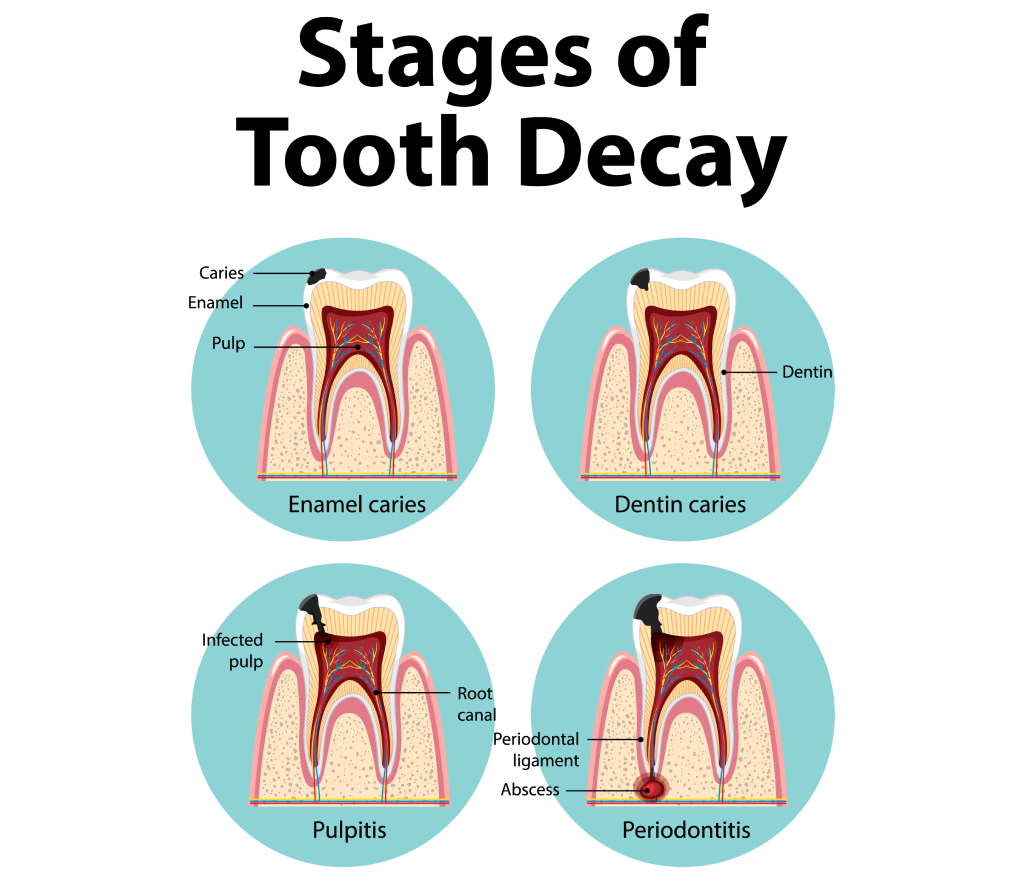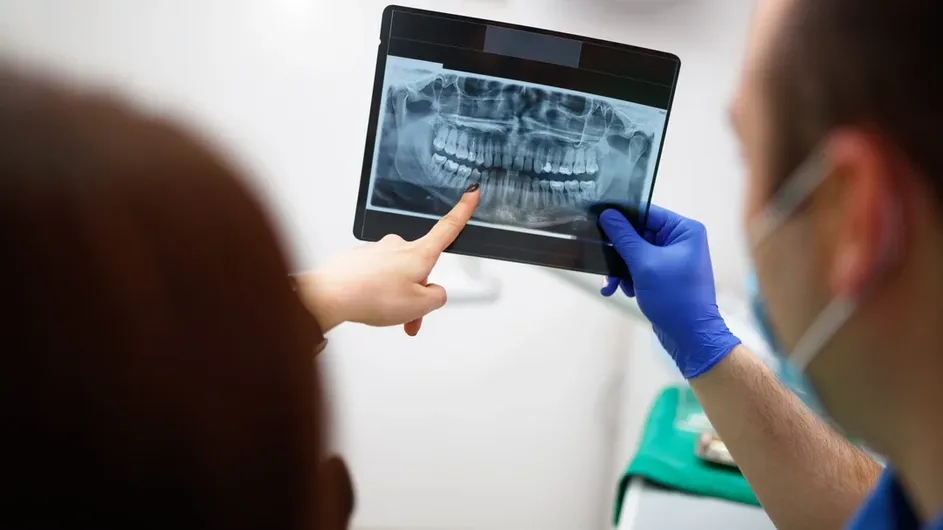services
Root Canal Treatment
Root canal therapy is one of the most effective ways to save a severely damaged or infected tooth without having to remove it. Rather than opting for extraction, a root canal helps restore the tooth’s function and eliminates pain caused by deep decay or infection.
The term “root canal” refers to the process of cleaning out the infected pulp tissue from the inner canals of the tooth. Thanks to modern dental advancements and the use of effective local anesthetics, root canal treatments today are typically no more uncomfortable than getting a regular filling.
While a root canal is generally safe and successful, like any dental procedure, it may carry some risks and side effects. These can include mild discomfort, temporary sensitivity, or, in rare cases, infection if the treated area isn’t properly cared for. However, with expert care and post-treatment instructions, complications are rare.
Root Canal Alternatives Include:
- Tooth extraction: Followed by a dental implant, bridge, or removable denture to restore function and aesthetics.
- No treatment at all: Not recommended, as the infection can spread to surrounding tissues and lead to more serious health issues.
At Restore Dental, we take a preventive approach and ensure every patient is fully informed about their options. As a trusted provider of Painless Dentistry in Gurgaon, we prioritize your comfort throughout every procedure. If you’re facing dental pain or suspect a tooth infection, schedule a consultation with our experienced team to explore the best, most conservative solution for your oral health.

What is a Root Canal?
A root canal procedure is designed to treat and save a tooth affected by infection or inflammation in the pulp tissue. By carefully removing the infected pulp, disinfecting the canals, and restoring the tooth with a filling and crown, we ensure the tooth continues to function without its original nerve or blood supply.
What is the process of root canal treatment?
A root canal is a dental treatment designed to save a tooth that’s infected or badly decayed. Before the procedure begins, your dentist or endodontist will perform diagnostic tests to confirm the need for a root canal. This usually includes dental X-rays and other evaluations to assess the condition of your tooth’s pulp.
Pre-Treatment Evaluation
- Tap the tooth or apply hot/cold to check for sensitivity.
- Perform an electric pulp test (EPT) to see if the nerve responds to stimulation.
- Examine the surrounding gums and bone for swelling.
- Ask if there’s pain when you bite down.
Steps Involved in Root Canal Treatment
- Numbing the Area: Local anesthesia is used to numb the infected tooth and nearby gums. If you’re anxious, your dentist might offer sedatives to help you stay calm and relaxed. (You may need someone to drive you home afterward.)
- Isolating the Tooth: A small rubber sheet, known as a dental dam, is placed around the tooth to keep the area clean and dry during the procedure.
- Accessing the Pulp: The dentist drills a small opening in the crown of the tooth to access the inner pulp.
- Removing the Infected Tissue: Using fine instruments, the dentist carefully removes the infected or dead pulp, including nerves and blood vessels.
- Cleaning and Disinfecting: The inner chamber and root canals are thoroughly cleaned and disinfected to eliminate bacteria and prevent further infection.
- Filling the Canals: The cleaned spaces are filled with a soft, biocompatible material called gutta-percha, which seals the canals.
- Temporary Seal: A temporary filling is placed over the tooth to protect it until a permanent restoration is ready.
- Final Restoration (Crown Placement): In most cases, a custom-made dental crown is placed over the treated tooth to restore its shape, strength, and function. This typically happens 2–3 weeks after the initial procedure.
How painful is a root canal?
When people hear they need a root canal, many immediately associate it with intense pain. But the reality is quite different. The discomfort you’re feeling isn’t caused by the root canal itself — it’s due to the underlying tooth infection. In fact, a root canal procedure relieves pain, rather than causing it.
What to Expect
Before starting the treatment, the dentist will numb the tooth and surrounding area with local anesthesia, ensuring the procedure is as painless as possible. If the root canal is done correctly and all the infected nerve tissue is removed, most patients feel little to no pain afterward. In some cases, mild tenderness or sensitivity may occur for a few days, especially when chewing, but this usually subsides quickly.
Post-Treatment Comfort
Thanks to advancements in modern dentistry, including rotary instruments and automated canal measuring tools, painless root canal treatment is now a reality. Root canals today are far more efficient and comfortable than ever before. Once the procedure is complete and a crown is placed, regular oral hygiene practices — such as brushing, flossing, and routine dental visits — can help maintain the tooth’s health and prevent future discomfort.
In summary, a root canal isn’t something to fear. It’s a safe and effective way to treat infection and preserve your natural tooth — all while keeping pain to a minimum.
Can I eat normally after a root canal?
After a root canal, it’s important to let your mouth heal properly — and that starts with what you eat. While you may feel hungry following a long dental visit, it’s best to wait until the numbness from anesthesia wears off before eating to avoid accidentally biting your cheek, tongue, or lip.
Best Foods to Eat After a Root Canal
Stick to soft, easy-to-chew foods that are gentle on your mouth and won’t interfere with your dental work. Some comforting and nutritious options include:
- Breakfast options: Scrambled eggs, smoothies, and yogurt
- Hearty meals: Mashed potatoes, shredded chicken or beef, and soft meatloaf
- Fruits: Ripe bananas, cooked fruits, or canned fruit (great with soft cheese or peanut butter)
- Grains: Pasta, noodles, couscous, or quinoa
- Vegetables: Cooked veggies, soft soups, or purees
- Light snacks: Saltines, soft bread, or matzah
- Desserts: Frozen yogurt or sorbet (mild temperature preferred)
These foods help keep you full while avoiding any stress on the treated tooth.
What to Avoid After a Root Canal
To protect your tooth and ensure smooth healing, follow two key rules: avoid anything too hard or sticky, and stay away from extreme temperatures.
Here’s what to skip:
- Sticky foods like gum, caramel, or chewy candy — these can dislodge temporary crowns
- Hard foods such as popcorn, ice, nuts, or hard candies — they risk cracking or damaging the tooth
- Hot or cold items — temperature-sensitive teeth or gums may react painfully to extremes, so keep things warm or cool instead of piping hot or ice cold
By following these dietary guidelines, you’ll support your recovery and avoid complications — helping you get back to normal faster with a healthier, stronger smile.
What are the do's and dont's after root canal treatment?
What to DO After a Root Canal
- Maintain Excellent Oral Hygiene: Although you should avoid brushing directly on the treated area for the first 24 hours, continue practicing good oral hygiene. Use an antibacterial mouthwash to keep your mouth clean and reduce the risk of infection.
- Stick to a Soft Food Diet: Give your treated tooth time to heal by eating soft foods like soups, mashed potatoes, yogurt, smoothies, and oatmeal. This will minimize pressure on the area and promote healing.
- Avoid Pressure on the Treated Tooth: Even if you’re feeling better, avoid biting down on hard or chewy foods until your dentist gives the all-clear. Overloading the treated tooth too soon can hinder recovery or cause damage.
- Attend Your Follow-Up Appointment: Your dentist will need to monitor your healing progress and may place a crown on the tooth for full protection. If you experience unusual pain, swelling, or sensitivity before your scheduled visit, reach out to your dentist immediately.
What NOT to Do After a Root Canal
- Don’t Skip Oral Hygiene: It’s vital to maintain clean teeth and gums post-treatment. Gently brush and floss daily to prevent bacteria buildup, especially around the treated tooth.
- Avoid Smoking and Alcohol: Smoking can delay healing and increase the risk of complications. Similarly, alcohol can interfere with your body’s natural recovery process and medication effectiveness.
- Don’t Eat Right Away: Your mouth will likely be numb for a few hours due to local anesthesia. Avoid eating until the numbness wears off to prevent accidentally biting your cheeks, lips, or tongue.
- Don’t Miss Your Medication: If your dentist prescribes antibiotics or pain relief medication, be sure to take them exactly as instructed. Skipping doses can lead to lingering infections or prolonged discomfort.
Final Tip from Restore Dental: Proper aftercare is crucial for the long-term success of your root canal treatment. If you experience persistent pain, swelling, or unusual symptoms, contact Restore Dental right away. We’re here to ensure your healing is smooth and your smile stays healthy.
A tooth infection doesn’t have to mean losing your tooth. At Restore Dental, we specialize in Root Canal Treatment (RCT) to save your natural teeth, relieve pain, and restore functionality—all while prioritizing your comfort and long-term oral health.
What is a Root Canal?
A root canal procedure is designed to treat and save a tooth affected by infection or inflammation in the pulp tissue. By carefully removing the infected pulp, disinfecting the canals, and restoring the tooth with a filling and crown, we ensure the tooth continues to function without its original nerve or blood supply.

Key Advantages of Root Canal Treatment
Preserves Your Natural Tooth – A root canal helps save your natural tooth, preventing the need for extraction. By maintaining the structure of your tooth, it ensures that your natural bite remains intact, reducing the risk of shifting teeth and bite misalignment.
Long-Term Predictability – With proper care and good oral hygiene, a root canal-treated tooth can last a lifetime. This treatment not only eliminates infection but also strengthens the tooth, making it a reliable and durable solution for long-term dental health.
Pain-Free Process – Thanks to advancements in anesthetic solutions and modern dental techniques, a root canal is now a comfortable and nearly painless experience. Most patients compare it to getting a routine filling, ensuring a stress-free and smooth procedure.
Root Canal Treatment at Restore Dental
At Restore Dental, we are committed to delivering the highest standards of care during root canal procedures. Here’s what sets us apart:
Endodontist Expertise
Performed by specialized endodontists for precision.
Pain-Free Treatment
Modern anesthesia for a comfortable experience.
Magnification Technology
Magnification ensures thorough cleaning.
Thorough Disinfection
Strict protocols for successful treatment.
Aftercare for Root Canal-Treated Teeth
While root canal treatment effectively eliminates infection and saves your natural tooth, maintaining good oral hygiene is crucial to ensure its long-term success. Brushing twice a day with fluoride toothpaste, flossing regularly, and using an antibacterial mouthwash can help prevent further decay and protect the treated tooth from future issues.
Additionally, regular dental check-ups and professional cleanings play a vital role in preserving the health of your restored tooth. Your dentist will monitor its condition, identify any early signs of potential problems, and provide preventive care to avoid complications. By following a consistent oral care routine and staying proactive with dental visits, you can enjoy a strong, healthy, and fully functional tooth for years to come.
Your Smile Deserves the Best!
Get in Touch with Restore Dental
Our team at Restore Dental is here to help! Fill out the form below, and we’ll get back to you as soon as possible. Let’s bring back your healthy, confident smile!
FAQs
1. What is a root canal?
A root canal is a dental procedure designed to treat infection or inflammation within the pulp tissue of a tooth. The process involves removing the infected pulp, disinfecting the canals, and then restoring the tooth with a filling and crown to ensure it continues to function without its original nerve or blood supply.
2. Why might I need a root canal?
You might require a root canal if you experience:
- Severe tooth pain, especially when chewing or applying pressure
- Prolonged sensitivity to hot or cold temperatures
- Discoloration or darkening of the tooth
- Swelling and tenderness in the nearby gums
- A recurring or persistent pimple on the gums
These symptoms may indicate that the tooth’s pulp is infected or damaged.
3. Is the root canal procedure painful?
With modern anesthetic solutions and dental techniques, root canal procedures are generally comfortable and nearly painless. Most patients compare the experience to getting a routine filling.
4. What are the benefits of undergoing a root canal?
The key advantages include:
Preservation of Natural Tooth: Maintains your natural tooth, preventing the need for extraction and preserving your natural bite.
Long-Term Predictability: With proper care, a root canal-treated tooth can last a lifetime.
Pain Relief: Eliminates the pain caused by the infected or inflamed pulp.
5. What should I expect after the procedure?
After a root canal, it’s normal to experience some sensitivity or discomfort for a few days, which can typically be managed with over-the-counter pain medications. It’s important to follow your dentist’s aftercare instructions and maintain good oral hygiene to ensure the longevity of the treated tooth.
6. Will I need a crown after a root canal?
In many cases, a crown is recommended after a root canal to protect the tooth and restore its function and appearance. Your dentist will assess your specific situation to determine if a crown is necessary.
7. How can I care for my tooth after a root canal?
Maintain good oral hygiene by brushing twice a day with fluoride toothpaste, flossing regularly, and using an antibacterial mouthwash. Regular dental check-ups and professional cleanings are also crucial to monitor the condition of the treated tooth and prevent further issues.
For personalized advice and to determine if a root canal is the right solution for you, consult with a dental professional experienced in endodontic treatments.
Discover More - Expert Articles on Root Canal Treatment

Post-Root Canal Care – The Power of Salt Water Rinsing
Root canal therapy is a common and effective treatment used to save teeth affected by deep decay or...

Root Canal vs. Tooth Extraction – Making the Right Choice for Your Smile
When a tooth becomes severely infected or its nerve is irreversibly damaged, you’re faced with..

Dealing with a Failed Root Canal – Causes and Next Steps
Root canal treatments are designed to save infected or damaged teeth by removing the...


